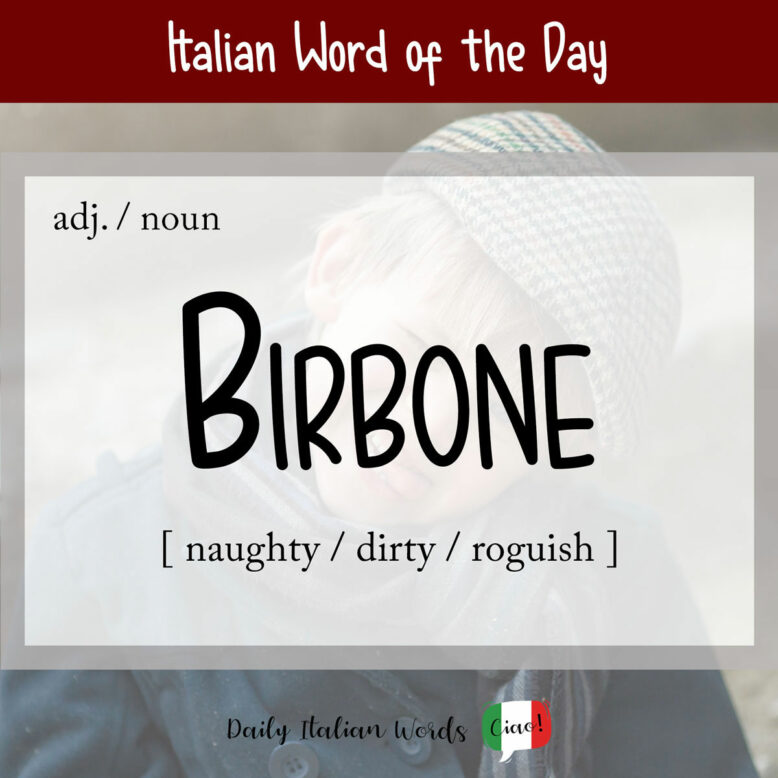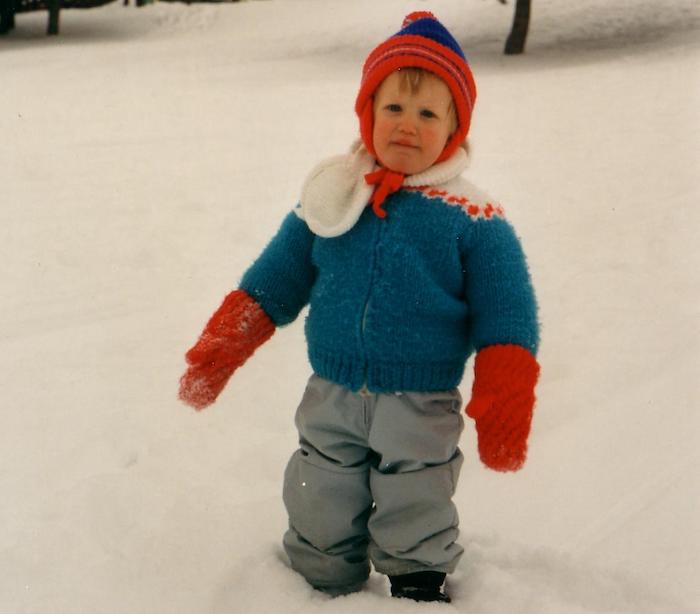There are three words I consistently use to describe my three-year-old son in Italian: birichino, monello and today’s word, birbone.
birbone

When birbone conveys the meaning dirty or underhanded, it almost always appears in the expression (giocare) un tiro birbone (to play a dirty trick).
Mi hai giocato un tiro birbone.
You played a dirty trick on me.
Alternatively, it can have a reinforcing function, adding emphasis to words like freddo (cold), caldo (hot), paura (fear), fame (hunger), sete (thirst) and so on. For example:
- fa freddo (it is cold) > fa un freddo birbone (it is terribly cold)
- fa caldo (it is hot) > fa un caldo birbone (it is terribly hot)
- avere paura (to be scared) > avere una paura birbona (to be very scared)
- avere fame (to be hungry) > avere una fame birbona (to be very hungry)
- avere sete (to be thirsty) > avere una sete birbona (to be very thirsty)

However, most Italian learners are more acquainted with the noun birbone than with the adjective. When used as a noun, it signifies a rascal or naughty boy/girl, typically directed at a child. It can be considered a synonym of birbante or monello.
Vieni qui birbone che ti prendo!
Come here, little rascal, I’m going to get you!

Whether you use it as an adjective or noun, it has masculine, feminine and plural forms as you can see below. Note that the masculine singular form is identical to the feminine plural.
- birbone = masculine, singular
- birbona = feminine, singular
- birboni = masculine, plural
- birbone = feminine, plural
A humorous derivative of birbone is birboncello which means exactly the same thing.
Heather Broster is a graduate with honours in linguistics from the University of Western Ontario. She is an aspiring polyglot, proficient in English and Italian, as well as Japanese, Welsh, and French to varying degrees of fluency. Originally from Toronto, Heather has resided in various countries, notably Italy for a period of six years. Her primary focus lies in the fields of language acquisition, education, and bilingual instruction.


